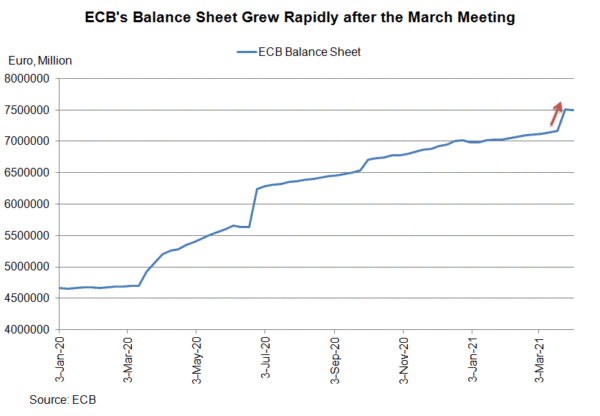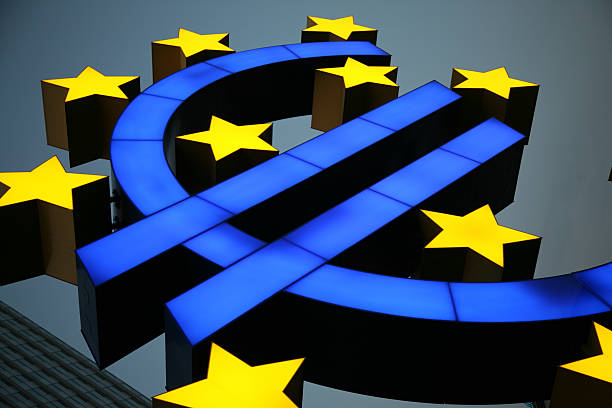The ECB minutes for the March meeting has supported EURUSD. The minutes revealed that policymakers saw upside risks to the economic outlook, thanks to US’ huge fiscal stimulus. Meanwhile, despite higher inflation in the near-term, it should remain subdued and below the central bank’s target. Policymakers also pledged to accelerate PEPP purchases in 2Q21 so as to contain rising yields.
Policymakers saw “clear upside” the economic growth as driven the latest round of US fiscal package. The central bank noted that the impact of the US$1.9 trillion plan had not been reflected in the March economic projections. As suggested in the minutes, “the balance of risk was now shifting and becoming more balanced, or possibly even starting to shift to the upside”. Governing Council member and Finnish central bank governor Olli Rehn has indicated at a speech today that the effect of the US fiscal stimulus could raise on Eurozone’s GDP growth by 0.3 to 0.5 percentage point.
On inflation, the members reiterated that the rise in price levels in the near-term was driven by “some transitory factors and an increase in energy price inflation”. They warned that “underlying price pressures remained subdued” amidst “weak demand and significant slack in labour and product markets”.
At the March meeting, ECB announced that it would accelerate monthly purchases of the PEPP in coming months. The minutes revealed that the decision was not made unanimously, but with a “broad consensus”. It was agreed that a significant increase in purchases would “give a clear message to markets on the Governing Council’s ‘reaction function’”. The ECB also noted that the decision was taken on “the understanding that the total PEPP envelope was not being called into question in the current conditions and that the pace of purchases could be reduced in the future”.
Interestingly, Dutch governor Klaas Knot has suggested today that the central bank could begin to “gradually phase out pandemic emergency measures” from 3Q21 the economy develops in line with the ECB’s baseline projections, while leaving the forward guidance and the APP in place. Elsewhere, Executive Board member Philip Lane affirmed that an expansionary monetary policy should be retained “even after the disinflationary pressure caused by the pandemic has been adequately offset”.
The chart below shows that ECB’s balance sheet has increased significantly in weeks after the March, resulting from front-loaded buying in the PEPP. As the central bank sees upside risks to growth and the decision of front-loaded purchases was not unanimous, it is likely that the purchases might slow again in 3Q21.
